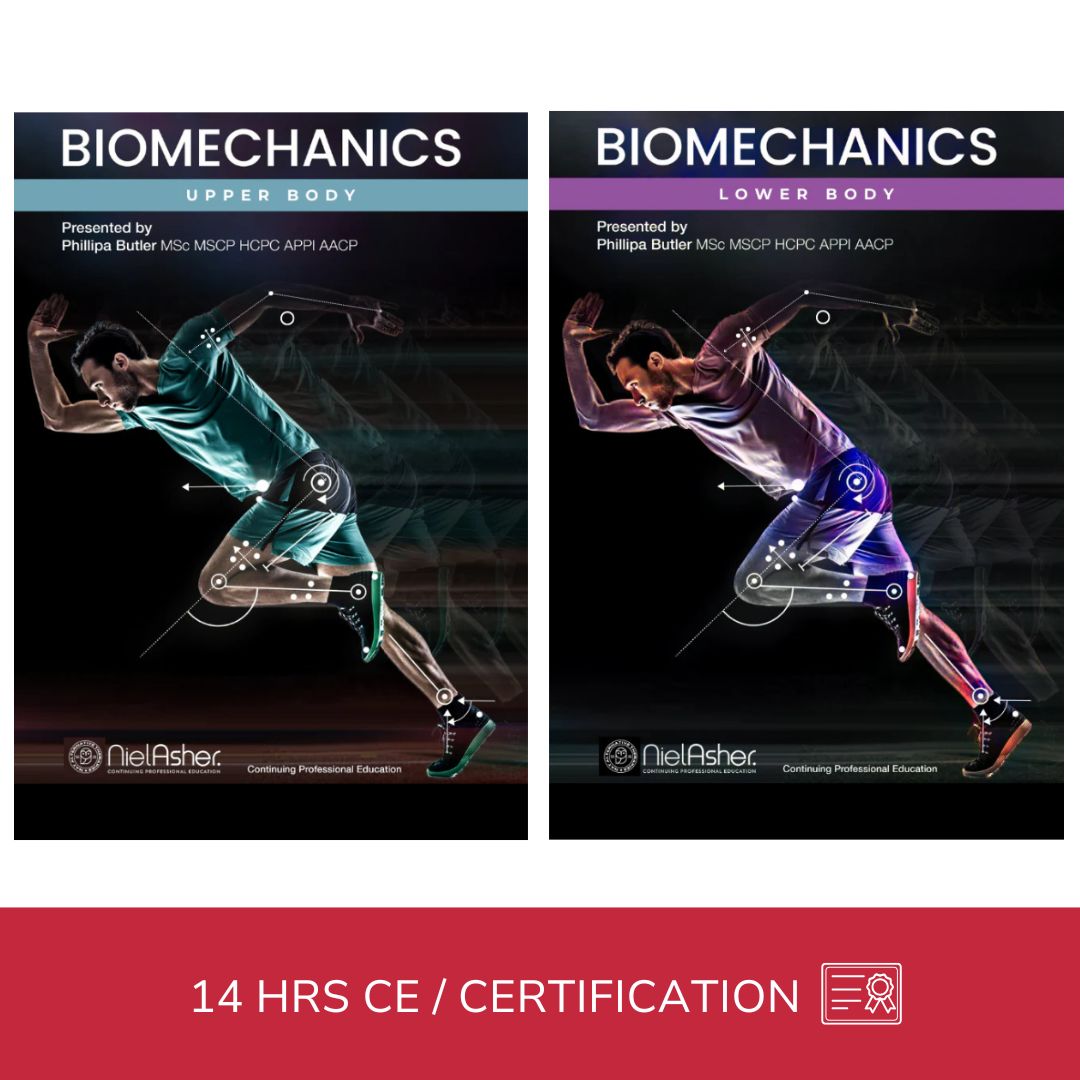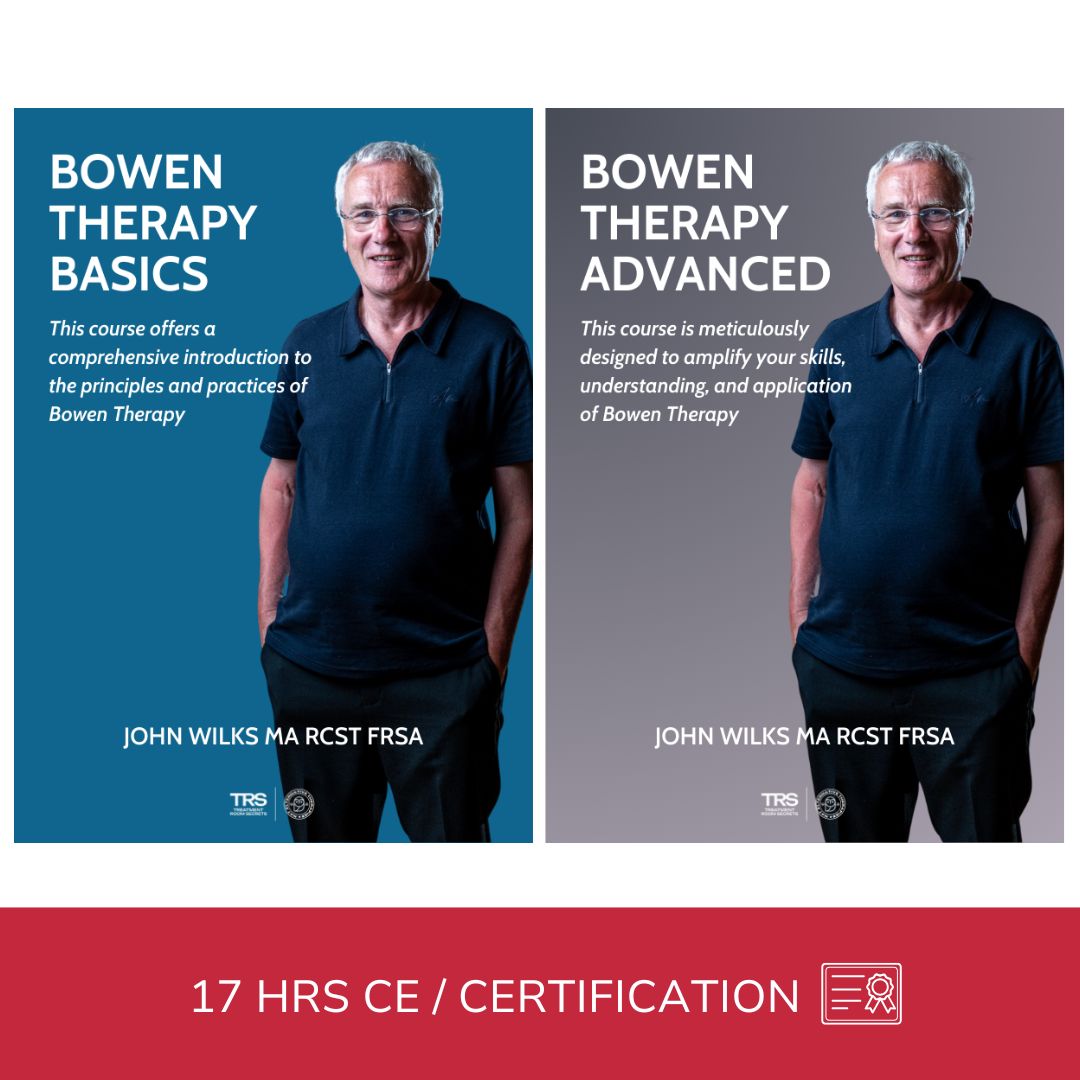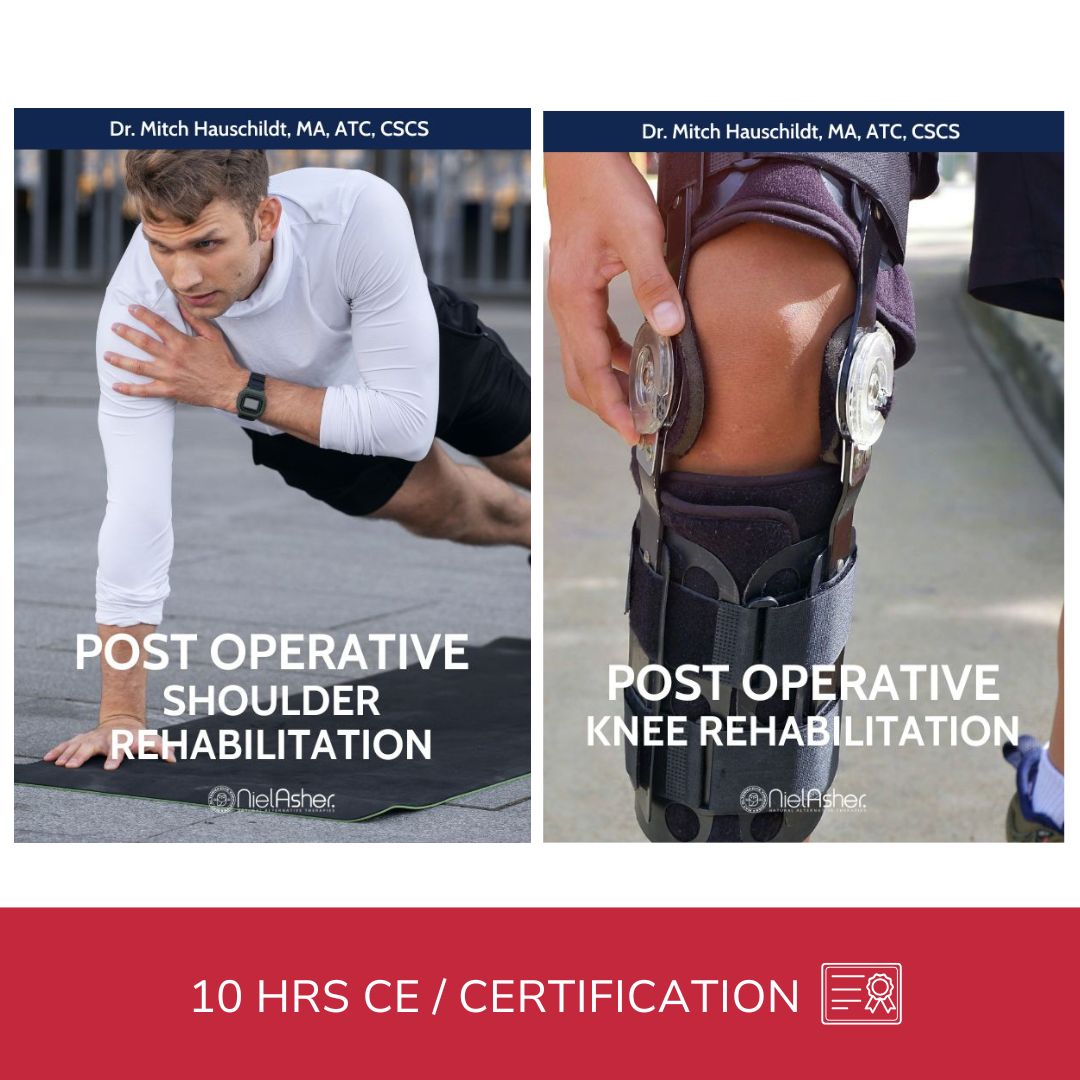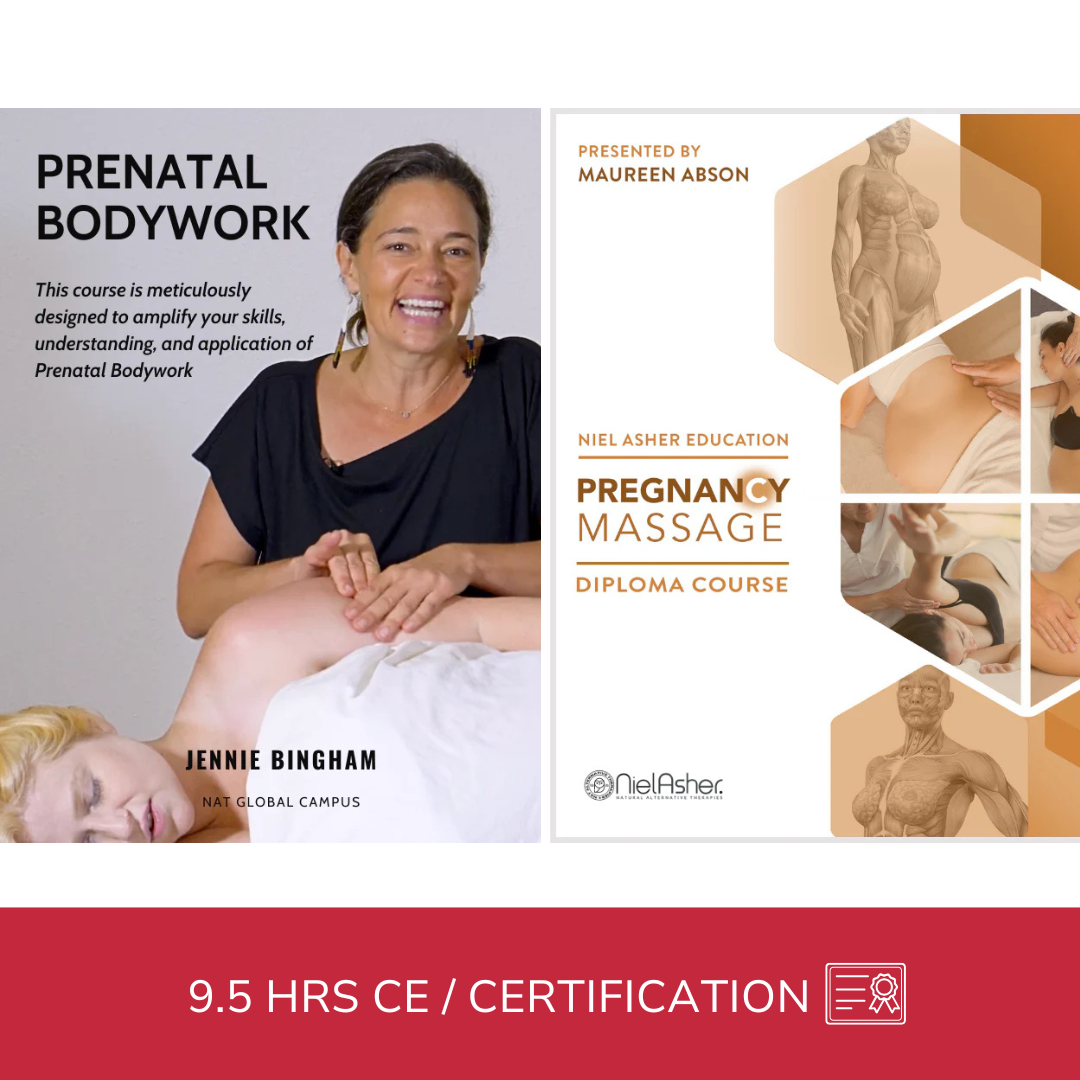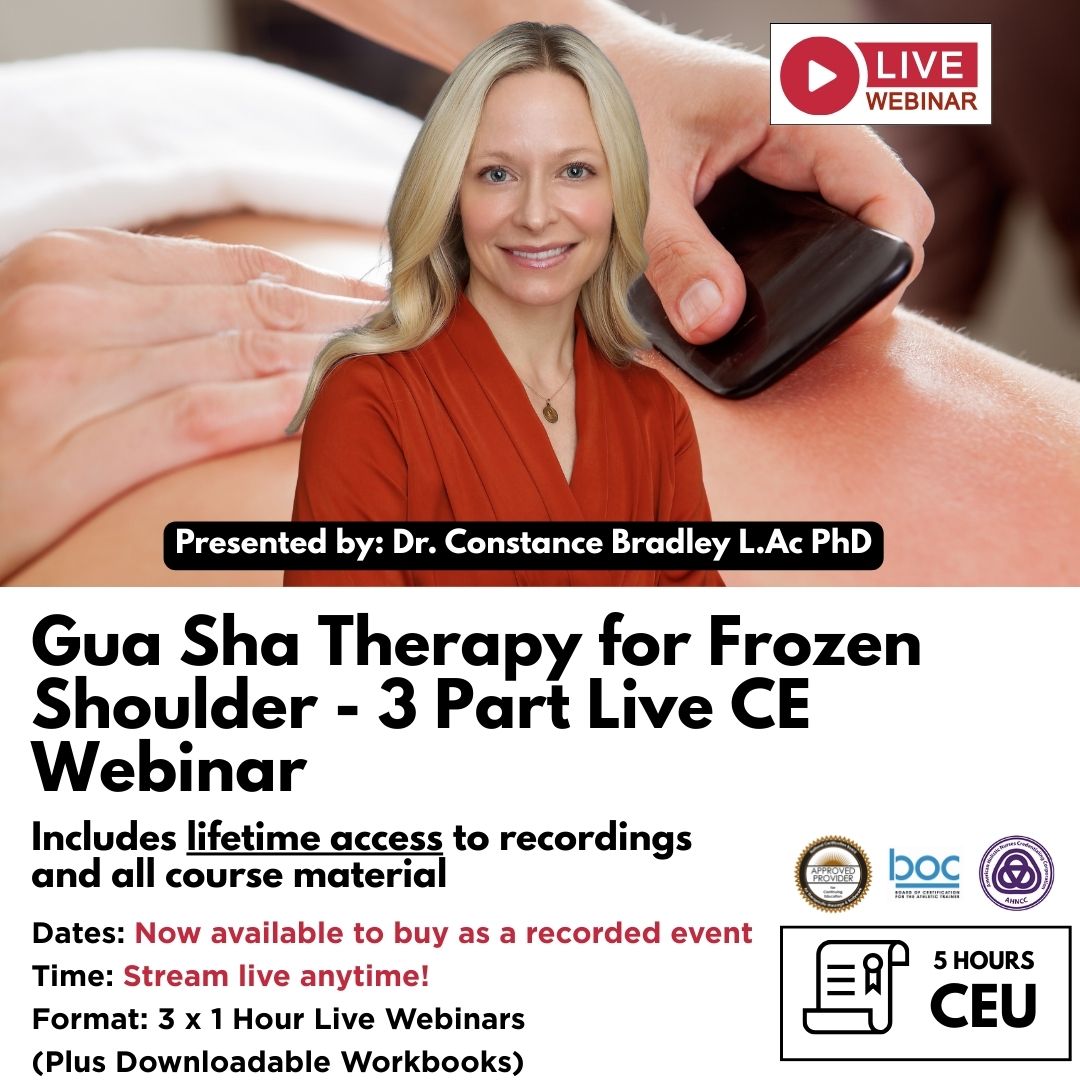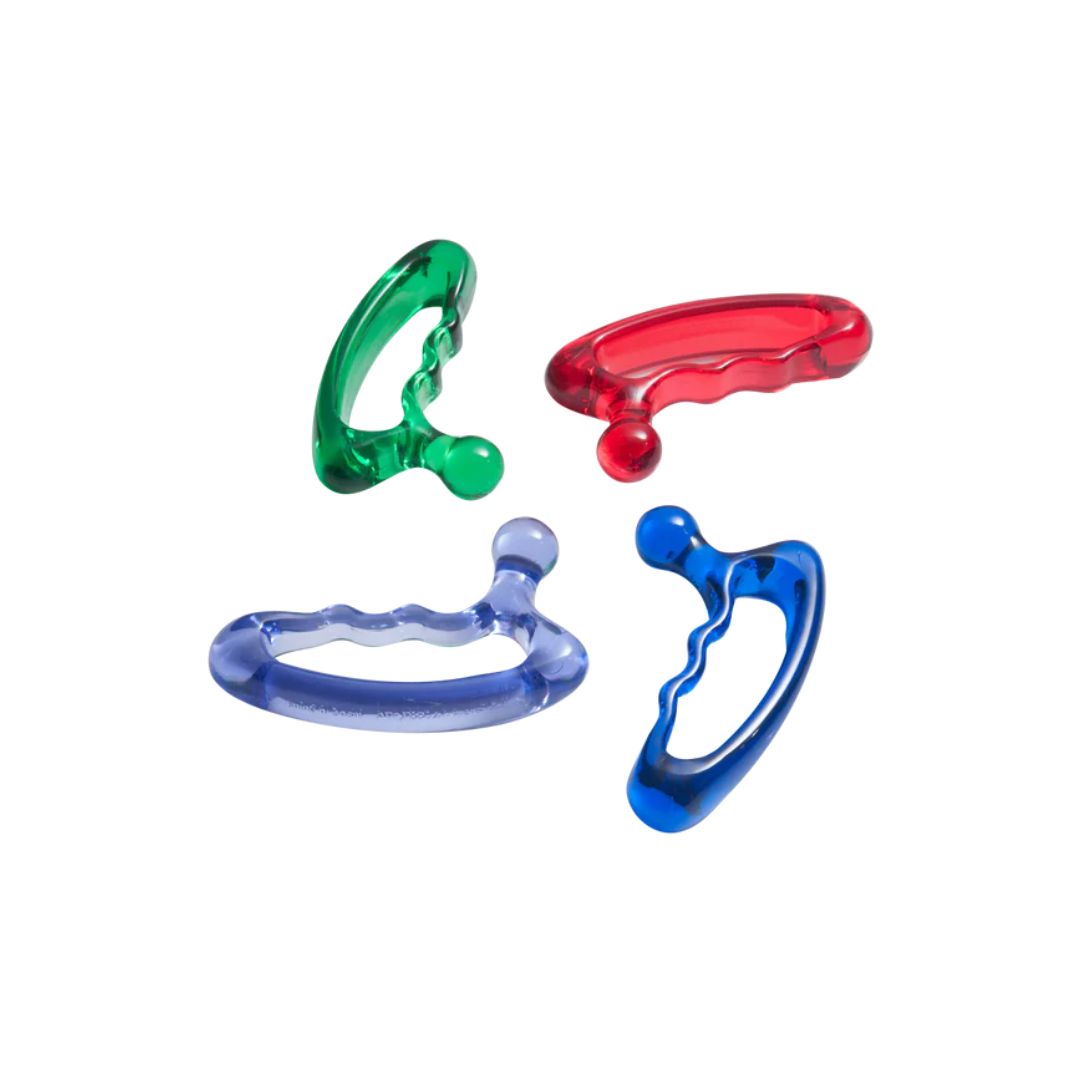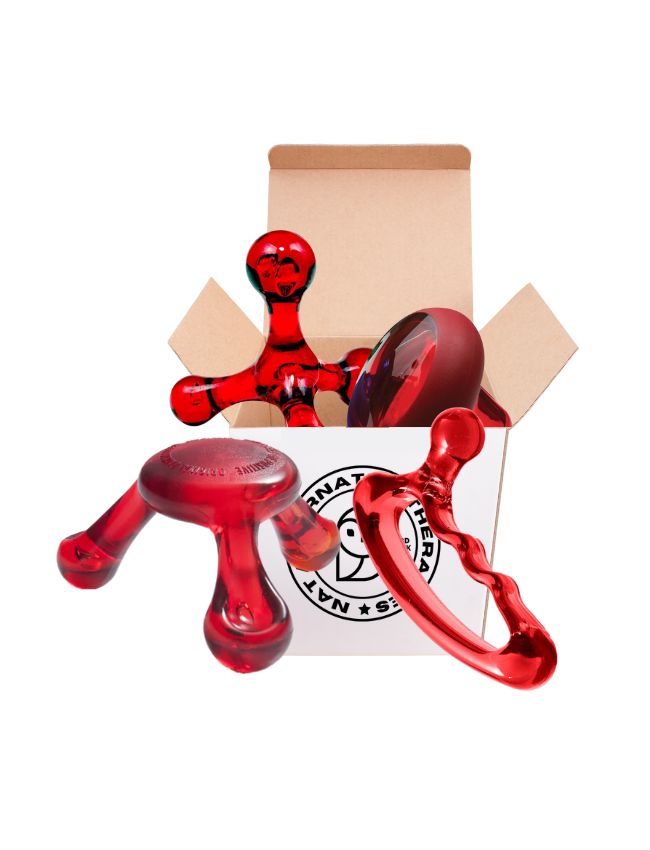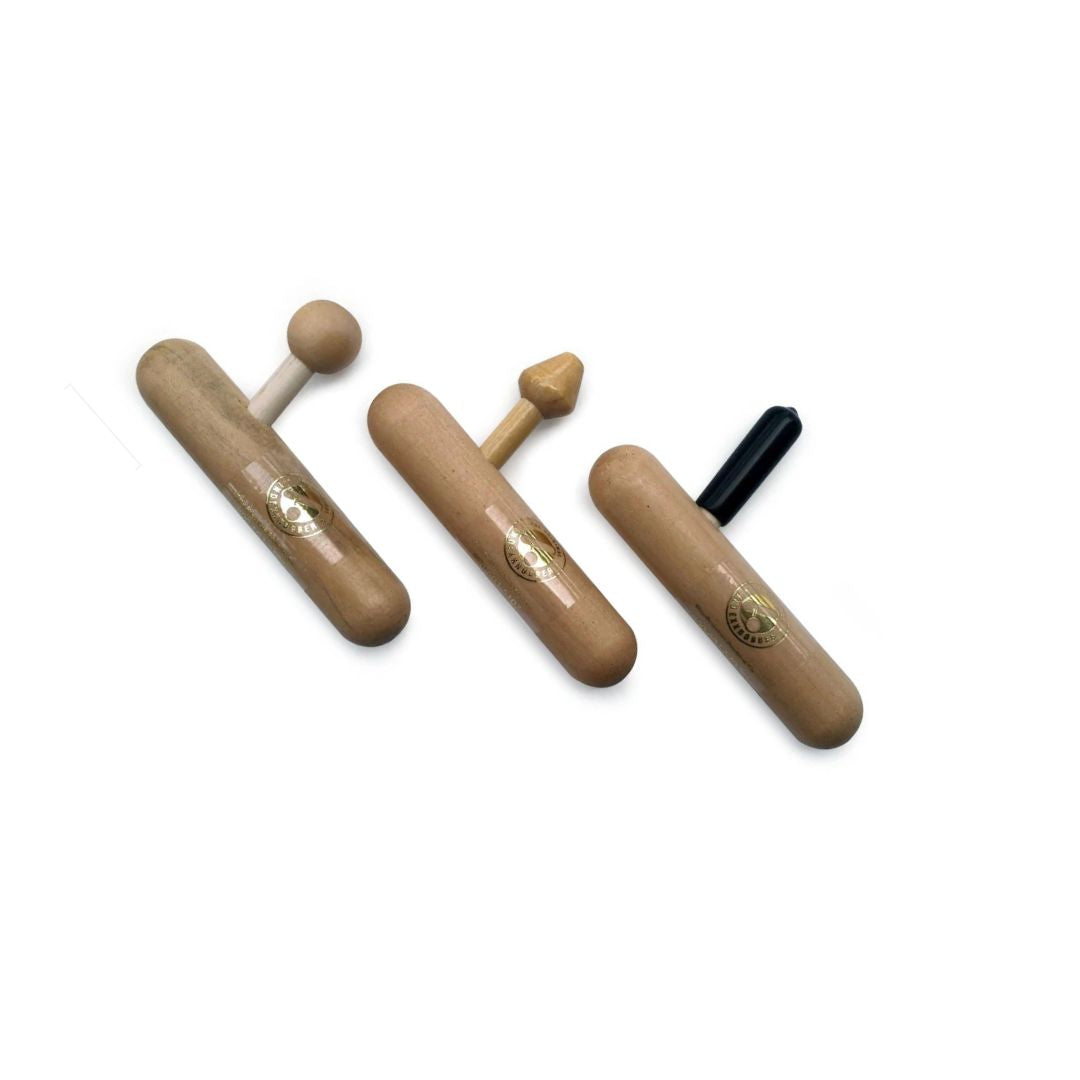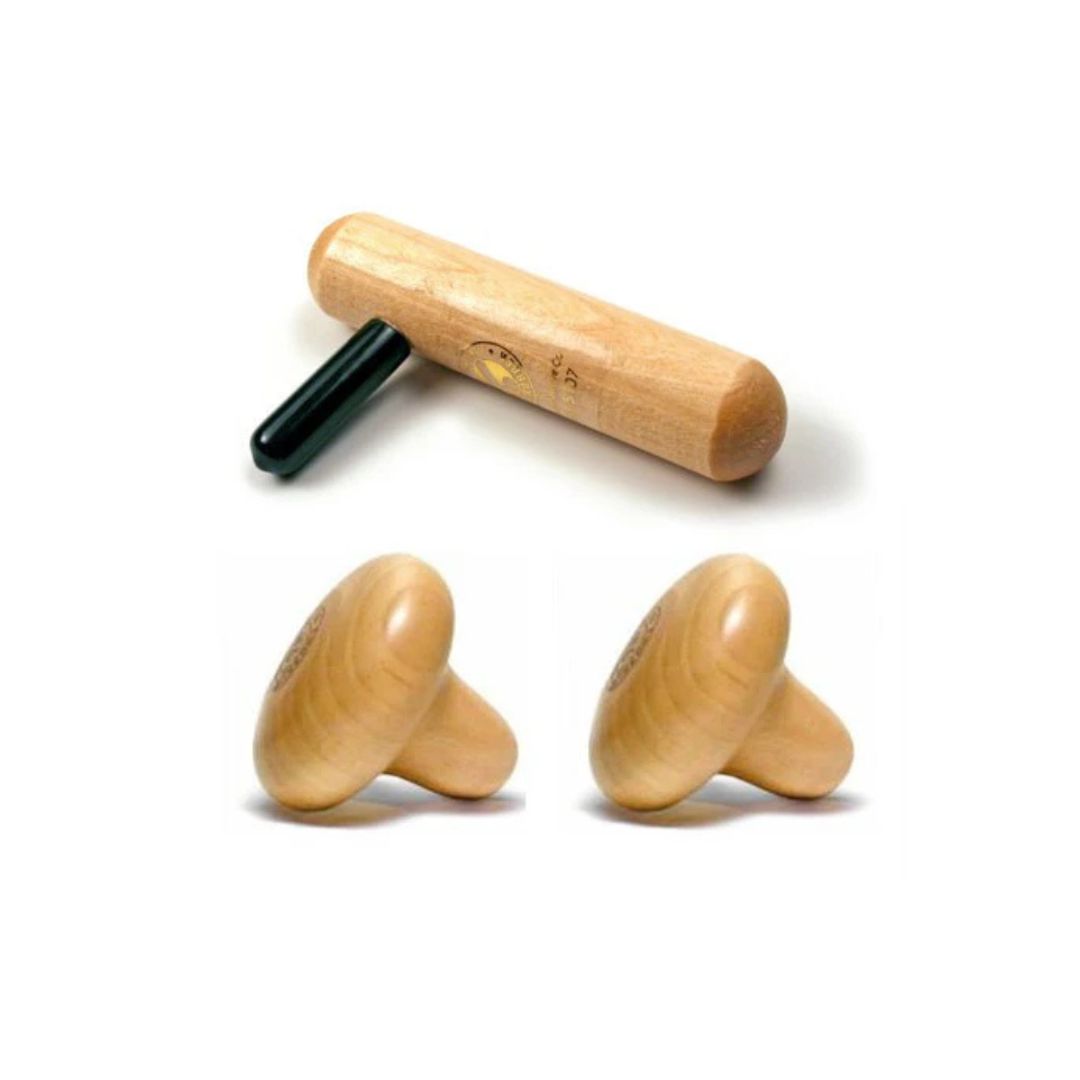Trigger Points Explained
Trigger Point Symptoms & Referred Pain Patterns
Pain is a complex symptom experienced differently and individually. However, referred pain is the defining symptom of a myofascial trigger point.
You may be used to the idea of referred pain of visceral origin: an example of this is heart pain. A myocardial infarct (heart attack) is often not experienced as crushing chest pain, but as pain in the left arm and hand, and in the left jaw.
This type of pain is well documented, and known to originate from the embryological dermomyotome; in this case, the heart tissue, jaw tissue, and arm tissues all develop from the same dermomyotome.
Referred pain from a myofascial trigger point is somewhat different. It is a distinct and discrete pattern or map of pain.
This map is consistent, and has no racial or gender differences, because stimulating an active trigger point generates the pain.
Trigger Points Explained
Patients describe referred pain in this map as having a deep and aching quality; movement may sometimes exacerbate symptoms, making the pain sharper.
An example of this might be a headache. The patient often describes a pattern of pain, or ache, which can sometimes be aggravated and made sharper by moving the head and neck.
The intensity of pain will vary according to the following factors (this list is not exhaustive):
Location (attachment points are more sensitive)
- Degree of trigger point irritability
- Active or latent trigger points
- Primary or satellite trigger points
- Site of trigger point (some areas are more sensitive)
- Associated tissue damage
- Location/host tissue stiffness or flexibility Aging
- Chronicity of trigger point
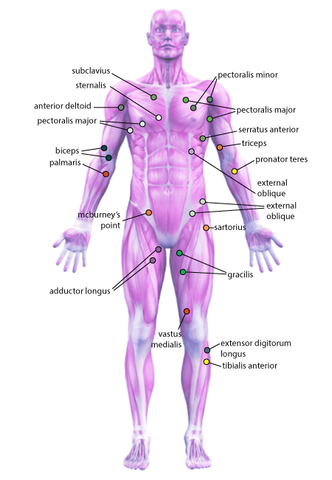
What is trigger point therapy?
Most of us will suffer from stiff, achy muscles, and numerous musculoskeletal pain conditions that are caused by "knots".
Trigger point therapy uses a variety of techniques to "deactivate" these painful knots and make them disappear.
Trigger point therapy is generally simple to perform, both at home by yourself, with a partner, or by working with a trained therapist.
For most musculoskeletal conditions, a combination of trigger point therapy together with some simple lifestyle changes will produce very fast and lasting results.
So, what happens when you treat (massage) a trigger point? Well, by doing so you:
-
numb and reduce the pain
- lessen the pain feedback pathways
- interrupt the pattern of pain and spasm
- stretch out tight muscles, which will indirectly affect other tissues
- open out the plastic-wrap-like myofascial bag that surrounds your muscles
- stimulate the blood supply helping to remove debris and toxins from the area
- encourage the release of powerful pain-killing endorphins
Pressing on trigger points:
-
numbs and reduces pain in the treated area and in the area of the percieved pain;
-
attenuates the pain feedback pathways;
-
breaks the vicious cycle of pain and spasm;
-
stretches tight structures, which will have an indirect effect on other tissues;
-
opens out the plastic-wrap-like myofascial bag surrounding, investing, and supporting the muscles;
-
stimulates the blood supply, to clear away debris and toxins;
- increases the release of powerful pain-killing agents called endorphins;
affects the autonomic/automatic nervous system.
How do you know it is a trigger point?
You are looking for:
-
Stiffness in the affected/host muscle
-
Spot tenderness (exquisite pain)
-
A palpable taut nodule or band
-
Presence of referred pain
-
Reproduction of the symptoms (accurate)
-
Possible loss of skin elasticity in the region of the trigger point
-
The affected area may be moister or warmer (or colder) than the surrounding tissues, and may feel a little like sandpaper.
What bits of your hands should you feel them with?
- Finger pads: remember to cut your fingernails (shorter is better).
- Flat fingers: use the fingertips to slide around the skin across muscle fibers (see fig. a)
- Pincer: pinch or grip the belly of the muscle between the thumb and the other fingers, rolling muscle fibers back and forth. (see fig. b)
- Flat-hand palpation: useful in the abdominal region (viscera).
- Elbow: allows a stronger and shorter lever, which can be a distinct advantage (not always practical, and can be difficult to get used to).

If you plan to treat yourself at home through self-help, hands-on treatments, you should schedule no more than one session a day, with a three or four day gap in-between. If you are using balls, rollers or pressure tools on the other hand, then you can usually increase the frequency of treatment up to up to six times a day (based on a 10-15 minute treatment session).
If you are receiving treatment from therapist, you should also expect "home-work". Your therapist will provide you with a suitable treatment plan for you to follow between visits.
How to Treat a Trigger Point - Click Here
About You and Your Pain
Over 25% of adults suffer from musculoskeletal disorders (MSD's), and this number is growing exponentially as we live longer, work longer, and adapt to changing lifestyles such as increased use of mobile and tech devices.
Whilst most MSD's will heal over time without treatment, the process is usually slow and debilitating. In some cases, a lack of early intervention and treatment can lead to more serious symptoms, and temporary or permanent disability.
Sadly, the majority of MSD sufferers will take little or no remedial action, most often because the costs of manual therapy can be prohibitive.
The good news is that the vast majority of MSD's can be effectively treated, especially when action is taken early.
Have a Chat with an Experienced Therapist
There are many types of painful injuries and dysfunction syndromes. In the majority of cases, manual therapy including trigger point therapy, correctly applied, should help relieve symptoms and accelerate the body's natural process of rehabilitation and recovery.
Use the directory section on this website to search and compare manual therapists, exercise professionals and trigger point therapists in your area (see link below).
Links
Find a Trigger Point Professional in your area
More Articles About Tibialis Anterior
Dry Needling for Trigger Points
Certify as a Trigger Point Therapist
About NAT Courses
As a manual therapist or exercise professional, there is only one way to expand your business - education!
Learning more skills increases the services that you offer and provides more opportunity for specialization.
Every NAT course is designed to build on what you already know, to empower you to treat more clients and grow your practice, with a minimal investment in time and money.
Help Desk
About Niel Asher Education
Niel Asher Education is a leading provider of distance learning and continued education courses.
Established in the United Kingdom in 1999, we provide course and distance learning material for therapists and other healthcare professionals in over 40 countries.
Our courses are accredited by over 90 professional associations and national accreditation institutions including the National Academy of Sports Medicine (NASM) and National Certification Board for Therapeutic Massage and Bodywork (NCBTMB). Full details of all international course accreditations can be found on our website.
Printed course materials and other products offered on our websites are despatched worldwide from our 3 locations in the UK (London), USA (Pennsylvania) and Australia (Melbourne).
More About Us
NAMTPT AWARD 2017
We are honored to have received the 2017 "Excellence in Education" Award from the National Association of Myofascial Trigger Point Therapists.
Since 1999 Niel Asher Education has won numerous awards for education and in particular for education and services provided in the field of trigger point therapy.
Read Full Article
Award Winning Instructors
Niel Asher Healthcare course instructors have won a host of prestigious awards including 2 lifetime achievement honorees - Stuart Hinds, Lifetime Achievement Honoree, AAMT, 2015, and Dr. Jonathan Kuttner, MD, Lifetime Achievement Honoree, NAMTPT 2014.
Meet the Instructors
NAT Certification
If you are a qualified/licensed manual therapist or exercise/fitness professional you can expand your credentials with NAT certification.
In addition to national accreditation for continued education, each course that we offer includes "NAT Learning Credits". By taking and completing courses you can accumulate NAT credits to qualify for NAT certification.
There are currently 3 levels of NAT certification. Certifying NAT is a valuable way to show your clients that you take continued education seriously, and to promote your skills and qualifications.
About NAT Certification
Niel Asher Technique
Since 1999 the Niel Asher Technique for treating trigger points has been adopted by over 100,000 therapists worldwide, and has been applied to the treatment of a number of common musculoskeletal injuries.
The Niel Asher Technique for treating frozen shoulder was first introduced and published in 1997 and has been widely adopted by therapists and exercise professionals working within elite sports and athletics.
Read More
Worldwide Free Shipping
Most of our courses are available as either "Printed" or 'Download" editions. When you purchase a download edition, you receive immediate lifetime access to all course material. Course texts can be downloaded and printed if required.
When you purchase a "Printed" edition, you will also receive free access to the download edition.
We ship Worldwide from locations in the USA, UK, and Australia. Most items are despatched within 24 hours and shipping is FREE for all orders over US$50.
Shipping
This trigger point therapy blog is intended to be used for information purposes only and is not intended to be used for medical diagnosis or treatment or to substitute for a medical diagnosis and/or treatment rendered or prescribed by a physician or competent healthcare professional. This information is designed as educational material, but should not be taken as a recommendation for treatment of any particular person or patient. Always consult your physician if you think you need treatment or if you feel unwell.
About Niel Asher Education
Niel Asher Education (NAT Global Campus) is a globally recognised provider of high-quality professional learning for hands-on health and movement practitioners. Through an extensive catalogue of expert-led online courses, NAT delivers continuing education for massage therapists, supporting both newly qualified and highly experienced professionals with practical, clinically relevant training designed for real-world practice.
Beyond massage therapy, Niel Asher Education offers comprehensive continuing education for physical therapists, continuing education for athletic trainers, continuing education for chiropractors, and continuing education for rehabilitation professionals working across a wide range of clinical, sports, and wellness environments. Courses span manual therapy, movement, rehabilitation, pain management, integrative therapies, and practitioner self-care, with content presented by respected educators and clinicians from around the world.
Known for its high production values and practitioner-focused approach, Niel Asher Education emphasises clarity, practical application, and professional integrity. Its online learning model allows practitioners to study at their own pace while earning recognised certificates and maintaining ongoing professional development requirements, making continuing education accessible regardless of location or schedule.
Through partnerships with leading educational platforms and organisations worldwide, Niel Asher Education continues to expand access to trusted, high-quality continuing education for massage therapists, continuing education for physical therapists, continuing education for athletic trainers, continuing education for chiropractors, and continuing education for rehabilitation professionals, supporting lifelong learning and professional excellence across the global therapy community.
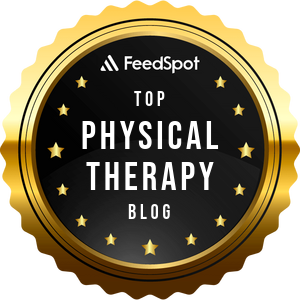
Continuing Professional Education
Looking for Massage Therapy CEUs, PT and ATC continuing education, chiropractic CE, or advanced manual therapy training? Explore our evidence-based online courses designed for hands-on professionals.


